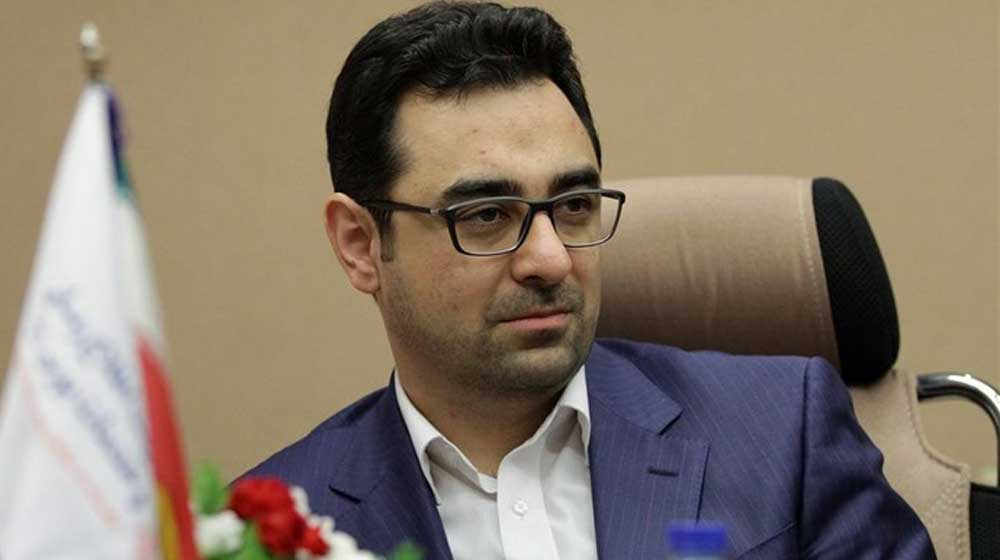The former deputy head of Iran’s Central Bank has been arrested over the country’s currency crisis.
Judiciary spokesman Gholamhossein Mohseni Ejei said the official was among seven people, including five foreign exchange dealers, who have been imprisoned: “The foreign exchange deputy of the central bank…,who recently I heard has been deposed, has been detained.”
Ejei did not name the official, but he appeared to be referring to Ahmad Araqchi, dismissed amid the fall of the Iranian rial by about 55% v. the US dollar this year.
See also Sanctions and Protests — What Now in Iran?
Araqchi was appointed as the head of the Central Bank’s Foreign Exchange Department in August 2017. He was tasked with unifying the official and open-market rates of the rial, an effort that was abandoned last week as the currency fell.
Araqchi, who must first narrow the gap between the official and parallel market rates, has replaced Gholamali Kamyab who is now CBI’s deputy for international affairs.
According to the news website of the Iran Chamber of Commerce, Industries, Mines and Agriculture, CBI hopes to give fresh momentum to floating the rial with this appointment.
Araqchi had served as a board member and senior executive deputy at the Securities and Exchange Organization of Iran.
Iran currently uses two exchange rates: a free market rate that stood at 38,130 rials to the US dollar on Monday and an official exchange rate for state transactions. CBI fixed the official rate at 32,859 rials on Monday.
The spokesman also said that another official, working in a Government department headed by an advisor of President Hassan Rouhani, had been detained as well as four unauthorized foreign exchange dealers and an employee of an exchange bureau.
The rial — already at a historic low of 45,000:1 in January — dropped by 35% in 48 hours a week ago, spurring protests in cities across Iran. It reached 119,000:1 before recovering in the last four days to 98,500:1.
The crisis stems both from long-standing internal problems and the expansion of US sanctions, announced by Donald Trump on May 8 with American withdrawal from the July 2015 nuclear deal between Iran and the 5+1 Powers.
But Iranian officials — including the Central Bank, the judiciary head, the Speaker of Parliament, the Interior Minister, and the Tehran Friday Prayer Leader — have blamed foreign “enemies” and “economic corruptors” at home.
The judiciary said last week that 29 people had been arrested on charges that could carry the death penalty.
The Government said on Saturday that it will unveil proposals today for a new foreign exchange system to stabilize the rial, attempting to control the open-market rate while maintaining a discounted rate of 42,000:1 for importers, exporters, and travellers.
The Central Bank announced Sunday that it will allocate hard currency, including US dollars and euros, for trading in basic commodities and pharmaceuticals at the subsidized rate.
The Bank also said it will alllow unlimited inflows of foreign currencies and gold without taxation, lifting a prohibition on exchange offices from buying or selling the currencies.
“We are in conditions similar to an economic war…[but] I want to say that on the day that you [the US] are imposing sanctions on us, we are opening up our markets,” Abdolnaser Hemmati, appointed Bank head last week, said on State TV. “I tell the people that our economic situation is very good and our foreign exchange balance is good.”
The declaration of proposals appeared to ease the crisis over the weekend. However, a similar announcement last month brought a temporary respite from another devaluation, only for the rial to plunge last week.
President Hassan Rouhani will address the nation on State TV on Monday night.
US Re-Imposes Sanctions
Carrying out Donald Trump’s order from May, the US Government is reimposing sanctions on Monday on automobiles and metals, including gold, and is banning imports of Iranian products such as carpets and pistachios and revoking licenses allowed Tehran to purchase US and European aircraft.
Secretary of State Mike Pompeo said Sunday, “There’s no evidence today of a change in their behavior….We’re going to enforce the sanctions.”
Iran acquired five French commercial planes on Sunday, just before the reimposed sanctions would have punished Paris for the delivery.
US sanctions on Iran’s oil sector and the Central Bank will be restored on November 4.

